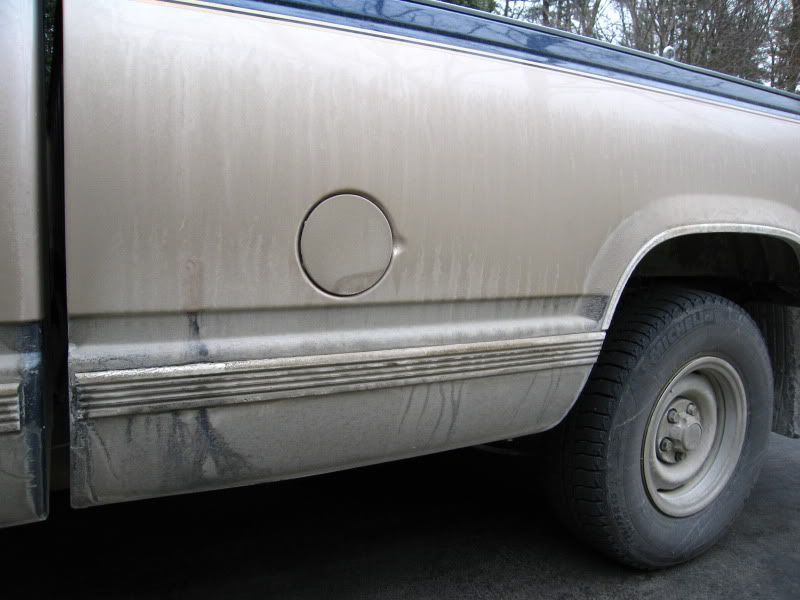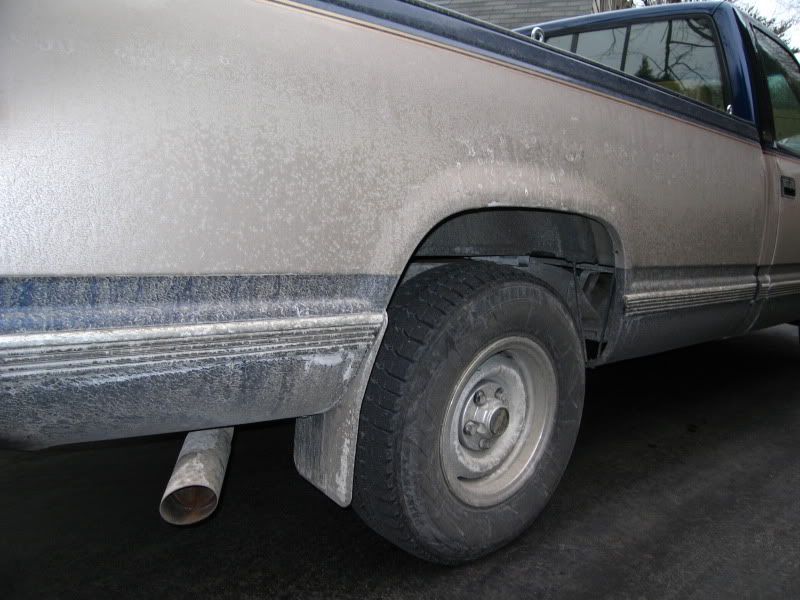Originally Posted By: LT4 Vette
Are winters/road salt up north that bad on vehicles ?

Yes, it is. It also depends a lot on what the Highway Dept uses on the roads. There is regular old road salt and then there are chemicals that really beat your vehicle up. It all leaves the same basic very heavy and thick coating of stuff that is like chalk.
If you live around here( New England )for example you HAVE to wash your vehicle frequently during the winter because of all the stuff they put on the road. If you don't in 2 years tops you will start having real issues with rust even on a brand new vehicle.
Your vehicle will look white'ish/gray up here all winter basically expect for the hour it stays clean after washing it. It really stinks. You wash it at the car wash and get it all cleaned up and it looks great and then you head home. By the time you get there it is all salted up again. Even when the roads are dry it still happens. It is like dust then. Truly dry roads are rare though from say Dec-Feb. Even when they are basically dry you usually have meting snow banks that get areas of the road wet. The water brings all the salt and chemicals used on the road back up and it gets splashed all over the vehicles. It really is a pain.
Real quick I grabbed some of my hunting albums and found a photo that will give you an idea. It is of my 03 Ram. It had snowed the day before so the roads were wet. That is why you see areas on the truck that look wet and have no salt. It is actually there it just doesn't show because it is wet. The entire truck is covered. When dry it will all be white. This would be considered only moderate salt coverage as well.
This is why those of us who live in an area that uses road salt shake our head at people that live down south near the ocean who say they haven't had any trouble with salt. It is a whole different ball game.

Are winters/road salt up north that bad on vehicles ?

Yes, it is. It also depends a lot on what the Highway Dept uses on the roads. There is regular old road salt and then there are chemicals that really beat your vehicle up. It all leaves the same basic very heavy and thick coating of stuff that is like chalk.
If you live around here( New England )for example you HAVE to wash your vehicle frequently during the winter because of all the stuff they put on the road. If you don't in 2 years tops you will start having real issues with rust even on a brand new vehicle.
Your vehicle will look white'ish/gray up here all winter basically expect for the hour it stays clean after washing it. It really stinks. You wash it at the car wash and get it all cleaned up and it looks great and then you head home. By the time you get there it is all salted up again. Even when the roads are dry it still happens. It is like dust then. Truly dry roads are rare though from say Dec-Feb. Even when they are basically dry you usually have meting snow banks that get areas of the road wet. The water brings all the salt and chemicals used on the road back up and it gets splashed all over the vehicles. It really is a pain.
Real quick I grabbed some of my hunting albums and found a photo that will give you an idea. It is of my 03 Ram. It had snowed the day before so the roads were wet. That is why you see areas on the truck that look wet and have no salt. It is actually there it just doesn't show because it is wet. The entire truck is covered. When dry it will all be white. This would be considered only moderate salt coverage as well.
This is why those of us who live in an area that uses road salt shake our head at people that live down south near the ocean who say they haven't had any trouble with salt. It is a whole different ball game.





